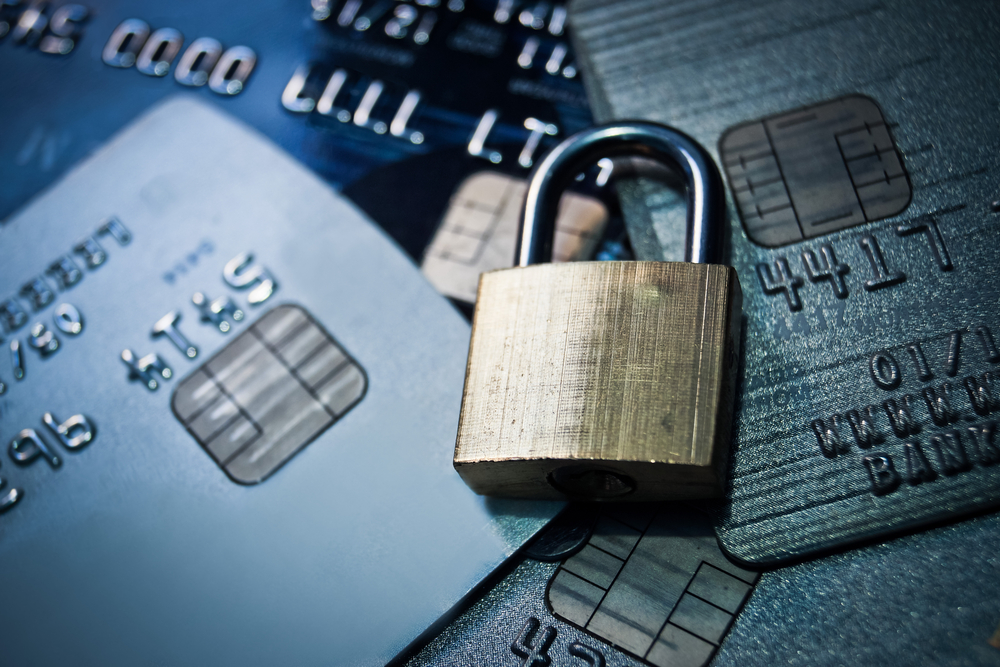
18 Apr What To Do If Your Identity Has Been Stolen
Falling victim to identity theft can bring on an overwhelming sense of vulnerability as well as a lot of stress. In today’s digital age — where personal information is increasingly at risk — knowing what to do if your identity has been stolen is crucial. From financial repercussions to potential legal complications, the fallout from this type of violation can be extensive to say the least.
Below, we’ll go over what to do if your identity is stolen and how to protect it from being further compromised.
Breakdown of Steps to Take If Your Identity Was Stolen
Although navigating the aftermath of identity theft may be daunting, taking decisive action is essential to minimize its impact. To help, we’ve outlined nine fundamental steps you should take if you’ve experienced this wrongdoing. Each one is meant to empower you to protect yourself and reclaim control of your financial well-being.
1. Lock Your Compromised Accounts: The first step is to lock or close the affected accounts to prevent further unauthorized use. Additionally, you may want to consider utilizing other prevention methods regarding how to prevent identity theft, such as two-factor authentication to enhance security. By acting swiftly, you minimize the potential for additional financial harm and protect your personal information from further exploitation.
2. Dispute Fraudulent Charges: If you identify unauthorized charges on an account, promptly dispute them with your bank or credit card company. These institutions will then investigate the charges and work toward resolving the issue. Through diligent follow-up and documentation of disputed charges, you increase the likelihood of a successful resolution and retrieval of any stolen funds.
3. Place a Fraud Alert: Inform the credit bureaus about the potential identity theft by placing a heads-up on your report. This signal notifies lenders to exercise caution when processing applications in your name. By activating this notification proactively, you minimize the risk of another account being fraudulently opened in your name without your knowledge.
4. Consider a Credit Freeze: Choosing this route acts as a robust safeguard against unauthorized access by preventing new accounts or loans from being opened without an exclusive code provided by you. By implementing this freeze, you exert greater control over access to your information, significantly reducing the risk of further misappropriation.
5. Police Report: Filing a police report regarding your identity theft incident is, among other things, a prerequisite to disputing fraudulent information appearing on your credit reports. Alternatively, notifying the Federal Trade Commission (FTC) about the incident through its website can also serve this function. Doing so allows you to contribute to broader efforts to combat this increasingly rampant type of crime and access valuable support and guidance throughout the recovery process. By reporting the incident, you also enable the authorities to gather crucial data for tracking and preventing future instances, ultimately safeguarding yourself and others from potential harm.
6. Strengthen Passwords: Enhance the security of your online accounts by creating strong, unique passwords for each one. Experts recommend incorporating a combination of letters, numbers and special characters. This measure significantly increases the complexity of your passwords, making it more challenging for a scammer to gain unauthorized access.
Additionally, regularly updating passwords and employing password managers helps not only simplify the process of managing multiple passwords, but it also provides an extra layer of protection against identity theft and cyberattacks by making certain your credentials remain secure and up to date. Putting these precautions in place helps fortify your defenses and reduces the risk of falling victim to malicious online activities.
7. Monitor Your Accounts: Continuously monitor your bank and credit card statements for any suspicious activity, even after taking initial actions against identity theft. Ongoing vigilance is vital in detecting and addressing fraudulent transactions promptly. You could also opt to enroll in credit monitoring services. These provide real-time alerts of unusual activity, offering a layer of protection and peace of mind in safeguarding your finances.
8. Replace Compromised Accounts: If you’ve closed an account due to identity theft, open a new one to replace it swiftly. This helps restore your financial stability and mitigate the impact of the breach. By replacing an account promptly, you help regain control over your financial affairs and reduce the risk of further unauthorized transactions.
9. Repair Your Credit: A great place to start is to pay bills on time and aim to maintain a low credit utilization ratio to rebuild your financial reputation over time. By consistently practicing responsible finance management habits such as these, you could gradually improve your creditworthiness and mitigate the long-term effects of identity theft on your financial standing.
Put Your Trust In an Identity Theft Lawyer
Often, when people ask, “What should I do if I think my identity has been stolen?” the best answer is to seek help from the professionals. At Stein Saks, PLLC, we have expert identity theft attorneys who use their expertise in FCRA / fair credit reporting to fight against the reporting of account information impacted by identity theft.
Contact us today to learn more about what we can do for you.


Sorry, the comment form is closed at this time.